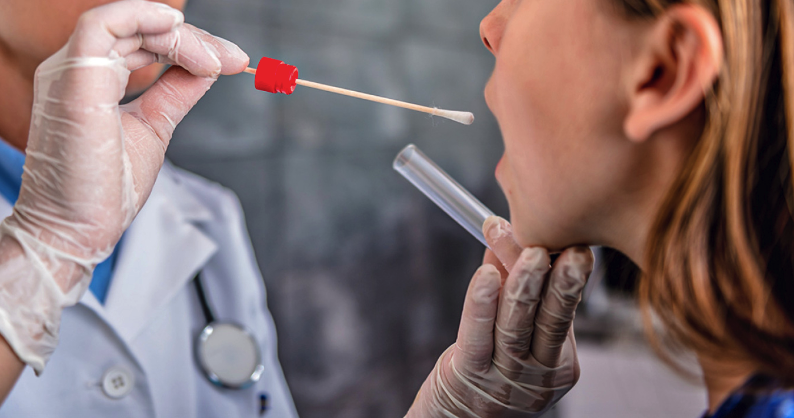he simultaneous presence of streptococcus and measles creates an infectious “ring.”
The outbreak of measles cases in European countries, mainly in neighboring Romania, has also impacted our country, with five confirmed cases already reported.
Additionally, fatal cases of invasive streptococcal infection have raised concerns, necessitating vigilance from parents in the coming months leading up to early spring.
Health authorities are diligently providing accurate information and addressing the vaccination gap, especially concerning measles.
The National Public Health Organization (NPHO) recently released the latest epidemiological data on Invasive Group A Streptococcus (iGAS) infection.
From the beginning of 2023 until yesterday, 94 cases of invasive group A Streptococcus infection in children and adults were reported to the EHRC. Among these cases were 23 deaths, with 11 involving children under the age of ten.
Recently, two cases of invasive group A Streptococcus disease were recorded, one of which resulted in fatality in the Eastern Macedonia and Thrace region.
This involved a 9-year-old girl from Didymoteicho who was admitted to the hospital in critical condition, experiencing high fever and shortness of breath, succumbing to the illness just 2.5 hours later.
Group A beta-hemolytic streptococcus (GAS) commonly causes bacterial pharyngitis in school-aged children. While typically mild, in rare instances, it may progress to severe and life-threatening invasive infection.
The rapid advancement of the infection, often to an untreatable stage, leading to the death of a child, is a sobering reality that even medical professionals find astonishing.
However, instances of this dangerous form of streptococcus infection remain rare.
As a rule, streptococcal infections are mild, peaking during the winter months and early spring, with clusters of cases often reported in schools and kindergartens.
Pediatricians note that the streptococcus bacterium tends to affect weakened immune systems, often striking during early spring when children’s bodies are recovering from previous infections.
Children with viral infections like influenza are at higher risk of developing an iGAS infection, according to the HSE.
Early recognition of iGAS infection and prompt initiation of antimicrobial and supportive treatment are crucial for a positive outcome.
Additionally, the HSE recommends identifying and treating close contacts of iGAS cases in the home and school environment, adhering to guidelines and administering prophylactic antimicrobial treatment where appropriate.
After three years without any reported measles cases in Greece, the threat of an epidemic outbreak is resurfacing due to increasing cases in Europe.
The Ministry of Health and EODY have devised an operational plan to address vaccination and immunity gaps in specific areas and populations.
‘My memory is fine’ – Biden hits back at special counsel
The working group established to enhance vaccination coverage and respond to measles cases anticipates a high likelihood of further outbreaks this year.
While a sero-epidemiological study by the EODY suggests satisfactory immunity among the Greek population, pockets with low vaccination coverage, such as the Greek Roma, remain susceptible, as evidenced by their majority involvement in the last measles epidemic in 2017-2018.




































